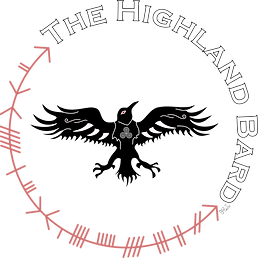In our yearly calendar, we are next headed into Imbolg, Lá Fhéile Bríde, midwinter feast of the goddess and saint Brighid, in early February. The home skills of baking and dairy are feast foods that feature prominently at this holytide. As Imbolg heralds the reawakening of the agricultural cycle of the landscape, this is also mirrored in the rhythm of the domestic animals, with lactating ewes and the anticipation of lambs.

Colcannon is a mashed potato dish that regularly graces the feast table of Gaelic celebrations. It is made of boiled potatoes, mashed and mixed with onions, kale, milk, salt and pepper, and lots of butter. Common variations include spring onion instead of yellow onion, and cabbage in place of kale. Sometimes bacon is added. I like them all!
Colcannon Recipe:
4 large potatoes, peeled and quartered
3 cups chopped kale or cabbage
1 large yellow onion, diced, or 4 spring onions, sliced
1 cup whole milk
Plenty of butter
Salt & pepper to taste
Bring water to boil to cook the potatoes.
While potatoes are cooking, melt a knob of butter in a skillet on medium heat and sauteé onions and kale until softened, then turn off heat and add the milk just to warm it.
When potatoes are fork tender, drain and mash with a knob of butter, then add the milk, kale, and onion, and gently stir to combine. Add salt and pepper to taste.
When serving, make a well in the top of the colcannon, and pour in a generous amount of soft or melted butter. Folks should dip into that extra butter when they scoop their serving.
Here are some tips to help you get the best results when making your colcannon:
● After peeling your potatoes, don’t rinse them, just quarter them and add right into your pot of cold water.
● Bring the water to a boil, then turn down the heat slightly so that the potatoes boil *gently*; you don’t want them to break all apart in the pot and get waterlogged. Cook them until fork tender but not turned to mush.
● Do not over mash/over mix the potatoes or they will turn gluey.
● Use a “floury” potato variety, such as Yukon Gold or Russet.
Give colcannon a try for your Imbolg feast table. Remember to be generous with the butter, and if you can, make your butter fresh that day in honour of Brighid.
Beannachtaí,
~ Erika
